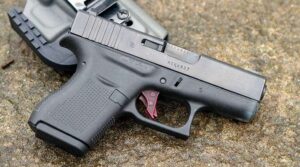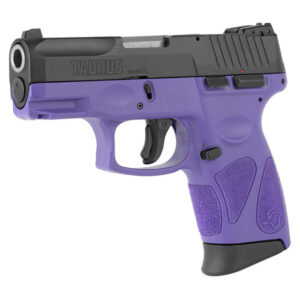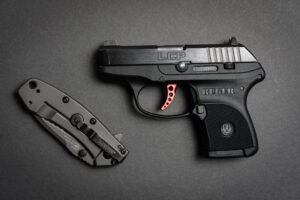Ammunition
Gun Ammunition Guide: Everything You Need to Know About Ammo
Showing all 4 results
-
$14.00 – $700.00 Select options This product has multiple variants. The options may be chosen on the product page
-
$31.00 – $1,289.00 Select options This product has multiple variants. The options may be chosen on the product page
-
$12.00 – $600.00 Select options This product has multiple variants. The options may be chosen on the product page
-
$34.00 – $1,300.00 Select options This product has multiple variants. The options may be chosen on the product page
Showing all 4 results
Gun Ammunition Guide: Everything You Need to Know About Ammo
Some of you may have heard jokes about furniture companies inventing sleep just to sell more beds. Similarly, one could say firearms were invented to boost ammo sales. Regardless of who had this genius idea first, one thing is clear: guns and ammunition are much less effective when used separately, but when combined, they become a force to be reckoned with.
Life would be simpler if all guns used the same ammunition, but that would also make the variety of firearms unnecessary. Luckily, things became easier when online ammunition shopping became possible. No more endless searches for local stores – now you can legally buy everything you need on the internet.
The Basics of Gun Ammunition
Just like firearms, gun ammunition comes in many forms, each designed for a specific purpose. Whether you’re looking for handgun and rifle cartridges, shotgun shells, or even air gun pellets, each type is unique in terms of primer design, projectile shape, and caliber.
Structure of a Firearm Cartridge
A typical firearm cartridge consists of the following components:
- Case: The outer shell that holds all components together.
- Projectile: This is the part that exits the gun barrel and hits the target. For shotguns, this can be a single slug or multiple shots (small projectiles).
- Propellant: Usually gunpowder, this component generates the gases that propel the bullet.
- Primer: A chemical compound that ignites the propellant when struck by the firing pin.
Rimfire vs. Centerfire Ammunition
The difference between rimfire and centerfire ammunition lies in their primer design:
- Rimfire ammo has the primer located in a protruding rim at the base of the cartridge. The firing pin strikes the rim to ignite the primer, which then ignites the propellant. Rimfire ammo, like .22 Long Rifle, is more affordable and often used for target shooting or small game hunting.
- Centerfire ammo features a primer located in the center of the cartridge base. This primer is replaceable, making centerfire ammunition ideal for hunting and self-defense. Though more expensive, centerfire is known for its reliability and accuracy.
Types of Projectiles
Ammunition can be classified based on the type of projectile:
- Single Projectile: Common in handguns and rifles, these are typically bullets or slugs in the case of shotguns.
- Multiple Projectiles: Shotguns often fire shots, small projectiles used for hunting birds and small game.
Understanding Caliber and Gauge
Caliber refers to the internal diameter of a firearm’s barrel and is used to categorize ammunition for handguns and rifles. It’s measured in inches or millimeters. For example, a 9mm bullet or a .45 ACP round refers to the diameter of the projectile.
For shotguns, the measurement system is different. Shotguns use gauge instead of caliber. The most common gauges are 12-gauge and 20-gauge. The smaller the gauge number, the wider the barrel. The exception to this rule is the .410 shotgun, which uses a diameter measured in inches, not gauge.
Popular Gun Ammunition Calibers
Here are some of the most popular calibers and their uses:
- 9mm Luger: Widely used for self-defense due to its low recoil and high capacity.
- .45 ACP: Known for its stopping power, this caliber is popular among those looking for a powerful handgun.
- .380 ACP: Ideal for concealed carry weapons, this round has less recoil but still offers reliable performance.
- .223 Remington/5.56 NATO: Commonly used in rifles like the AR-15, these cartridges are versatile and used for both hunting and home defense.
- .308 Winchester: A long-range hunting cartridge known for its accuracy and power.
- .22 LR: A popular rimfire cartridge that is perfect for recreational shooting and small game hunting due to its low cost and minimal recoil.
Buying Gun Ammo Online
Why bother searching for “ammunition near me” when you can easily purchase your ammo online? At Gritr Sports, we offer a wide range of ammo for sale from top brands like Hornady, Federal, and Winchester. Whether you’re looking for bulk ammo, specialty rounds, or even reloading supplies, we have you covered.
FAQs
1. What are the most popular gun ammunition calibers?
- The most popular calibers depend on the intended use. For self-defense, 9mm Luger and .45 ACP are top choices. For hunting, .223 Remington and .308 Winchester are widely used. For recreational shooting, .22 LR is a favorite due to its affordability.
2. What is bullet grain weight, and does it affect shooting?
- Bullet grain refers to the weight of the bullet, measured in grains. Grain weight can impact bullet velocity, accuracy, and stopping power. Heavier bullets generally have higher stopping power and better penetration, while lighter bullets offer higher velocity and reduced recoil, improving accuracy.
3. What is the difference between rimfire and centerfire gun ammunition?
- Rimfire ammunition has its primer in the rim of the cartridge, while centerfire ammo has its primer at the center of the base. Rimfire ammo is cheaper and produces less recoil, but it’s not reloadable and has lower power. Centerfire is more reliable, reloadable, and better for hunting larger game.
4. What’s the best caliber for home defense?
- The 9mm Luger is often considered the best option for home defense due to its low recoil and high capacity, making it easier to shoot accurately in stressful situations.
5. How do I choose the right ammo for my firearm?
- The best ammo depends on the caliber of your firearm, your intended use (self-defense, hunting, target shooting), and personal preferences like recoil and stopping power.
6. Can I buy gun ammo online?
- Yes, you can legally purchase gun ammo online, provided it complies with your local regulations. At Gritr Sports, we offer a wide selection of ammunition available for online purchase.
7. What is the best ammo for target shooting?
- For target shooting, .22 LR is a popular choice due to its low cost and minimal recoil. For rifles, 5.56 NATO or .223 Remington are great options.
8. What is a shotgun slug?
- A slug is a single, large projectile fired from a shotgun, often used for hunting larger game like deer.
9. Can I reload my ammo?
- Centerfire ammunition can be reloaded, but rimfire ammunition cannot. If you are looking to reload, we offer reloading supplies at Gritr Sports.
10. What’s the difference between birdshot, buckshot, and slugs?
- Birdshot is a spread of small pellets, buckshot uses larger pellets for greater stopping power, and slugs are single, solid projectiles for more focused damage.
11. Is steel-cased ammo bad for my gun?
- Steel-cased ammo is typically less expensive but can cause more wear on your firearm than brass-cased ammo due to its hardness. It’s safe to use, but brass is often preferred for longevity.
12. What’s the difference between hollow point and full metal jacket (FMJ) ammo?
- Hollow point ammo is designed to expand upon impact, making it ideal for self-defense, while FMJ ammo is typically used for target shooting due to its affordability and penetration.
13. How is shotgun ammo measured?
- Shotgun ammo is measured in gauge rather than caliber. Common gauges include 12 gauge and 20 gauge.
14. What’s the most affordable ammo for target shooting?
- .22 LR is the most affordable option for target shooting due to its low cost and wide availability.
15. What’s the best ammo for small game hunting?
- .22 LR and .410 bore are great for small game hunting, offering low recoil and sufficient stopping power for smaller animals.
16. How should I store my ammo?
- Store your ammunition in a cool, dry place and in airtight containers like ammo cans to ensure it remains usable for longer.
17. Can I use self-defense ammo for target shooting?
- Yes, but it’s more expensive. FMJ ammo is usually more economical for target shooting, while hollow points are reserved for self-defense.
18. What is the effective range of 9mm ammo?
- The effective range of 9mm ammo is typically around 50 yards, depending on the firearm and shooting conditions.
19. What does “+P” mean on ammunition?
- +P ammunition is loaded to produce higher pressure than standard ammo, resulting in increased velocity and stopping power. It’s often used for self-defense.
20. What brands of ammunition does Gritr Sports carry?
- We offer top brands such as Hornady, Federal, Winchester, Redding, and A-zoom, among others.







